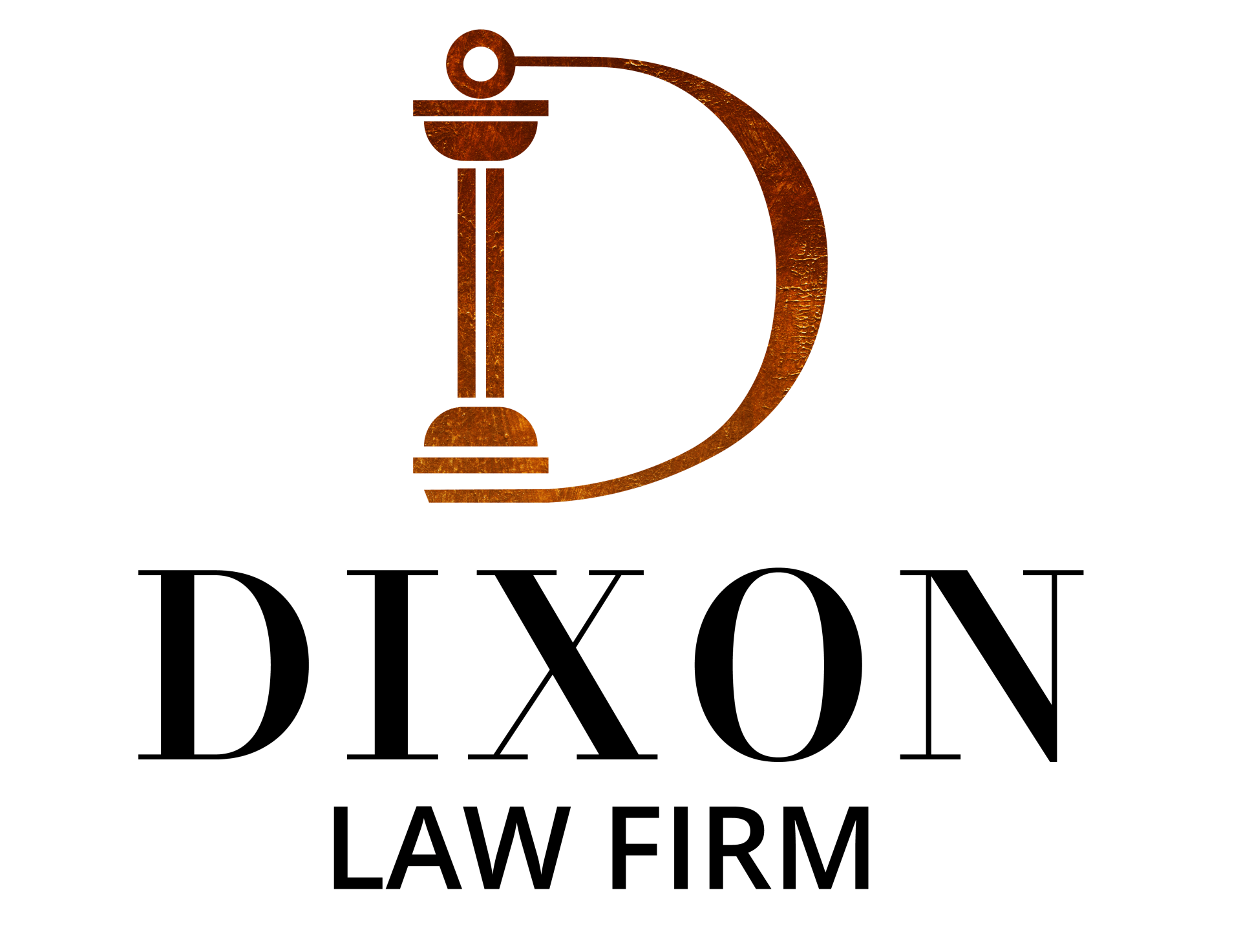Boynton Beach & South Florida
Guardianship Services by Dixon Law Firm
Protecting Your Loved Ones with Compassionate Guardianship in South Florida
Guardianship is a legal process that ensures vulnerable individuals, such as minors or incapacitated adults, are protected and cared for when they cannot manage their personal or financial affairs.
At Dixon Law Firm, we provide compassionate and comprehensive guardianship services tailored to meet the needs of families in South Florida. Led by Alicia Dixon, one of the region’s most trusted and experienced estate planning attorneys, our firm is dedicated to guiding clients through every step of the guardianship process with clarity and confidence.
Navigating Guardianship
What Is Guardianship?
Guardianship is a court-supervised legal arrangement in which a person, known as a guardian, is appointed to manage the personal, medical, and/or financial affairs of another individual, known as the ward. This legal mechanism is designed to protect individuals who are unable to make decisions for themselves due to age, illness, or incapacity.
A guardianship can be established for:
- Minors: When a child’s parents are deceased, unavailable, or unable to care for them.
- Incapacitated Adults: When an adult is deemed unable to manage their affairs due to physical or mental disabilities, illness, or injury.

Why You May Need a Guardianship Lawyer
Navigating the guardianship process can be complex and emotionally challenging. Working with an experienced guardianship attorney provides critical benefits, including:
Alicia Dixon and her team are committed to providing compassionate legal support, helping families make informed decisions during what is often a difficult time.

Empowering You
Types of Guardianship in Florida
At Dixon Law Firm, we help clients understand and establish the type of guardianship that best suits their needs. Florida recognizes several types of guardianship, including:
- Plenary Guardianship: Plenary guardianship grants the guardian full authority over the ward’s personal, financial, and medical decisions. This type of guardianship is typically established when the ward is deemed completely incapacitated.
- Limited Guardianship: Limited guardianship is appropriate when the ward retains some capacity to make decisions. The court grants the guardian authority only over specific areas where the ward requires assistance.
- Emergency Temporary Guardianship: Emergency temporary guardianship may be established when an urgent situation arises that requires immediate protection of the ward’s health or assets. This guardianship is temporary and remains in effect until the court makes a final decision.
- Guardianship for Minors: This type of guardianship applies when a child’s parents are unable to care for them due to death, incapacity, or other circumstances. A guardian is appointed to ensure the child’s well-being and manage their inheritance if applicable.
6 Steps
The Guardianship Process in Florida
- Filing a Petition: The guardianship process begins with filing a petition in the appropriate Florida court. The petition must outline why the guardianship is necessary and provide supporting evidence regarding the ward’s incapacity or need for assistance.
- Court Evaluation and Examination: In cases involving incapacitated adults, the court will appoint a committee of professionals (typically including a physician and a psychologist) to evaluate the ward’s physical and mental condition. This evaluation helps determine the level of guardianship required.
- Guardian Advocate: In some cases, the court may appoint a guardian advocate to represent the best interests of the alleged incapacitated person.
- Court Hearing: The court will hold a hearing to determine whether guardianship is necessary. Interested parties, including family members, may attend and provide testimony.
- Appointment of the Guardian: If the court determines that guardianship is necessary, it will appoint a guardian and issue letters of guardianship that define the scope of the guardian’s authority. Dixon Law Firm ensures that clients understand their responsibilities and are prepared to fulfill their duties effectively.
- Ongoing Reporting and Supervision: Guardians are required to submit regular reports to the court detailing the ward’s condition, financial transactions, and overall care. Our firm assists guardians in meeting these legal obligations while providing ongoing support and guidance.

Responsibilities of a Guardian
Being a guardian carries significant responsibilities, and it is essential to approach this role with care and diligence. Common duties include:
- Managing Finances: Overseeing the ward’s income, assets, and expenses, including creating budgets, paying bills, and investing funds.
- Healthcare Decisions: Coordinating medical care, making healthcare decisions in the ward’s best interests, and ensuring the ward receives appropriate medical treatment.
- Personal Care: Ensuring the ward’s living arrangements, nutrition, and daily needs are met, including providing for housing, food, clothing, and personal hygiene.
- Education and Social Needs: If the ward is a minor, ensuring access to appropriate education and social opportunities.
- Legal Compliance: Adhering to court requirements, maintaining accurate records, and filing periodic reports.
At Dixon Law Firm, we provide guardians with the tools and knowledge they need to fulfill these responsibilities successfully.

Protecting Rights in Guardianship Disputes
Contesting Guardianship
In some cases, disputes may arise regarding the necessity of guardianship or the suitability of a proposed guardian. Dixon Law Firm represents clients in contested guardianship cases, advocating for their rights and ensuring that the ward’s best interests remain the top priority. Our services include:
- Challenging the appointment of a guardian.
- Representing family members in disputes.
- Assisting with modifications or termination of guardianship arrangements.
Empowering Choices
Alternatives to Guardianship
While guardianship is sometimes necessary, there are alternatives that may provide a less restrictive means of supporting individuals. At Dixon Law Firm, we explore all available options before recommending guardianship, including:
- Durable Power of Attorney: Appointing a trusted individual to manage financial or medical decisions.
- Living Trusts: Establishing a trust to manage assets and provide for the individual’s needs.
- Healthcare Surrogate Designations: Assigning someone to make medical decisions on the individual’s behalf.
- Supported Decision-Making: Exploring options for the individual to receive support in making their own decisions, rather than having a guardian make decisions for them.
These alternatives can often achieve similar results while preserving the ward’s autonomy and minimizing court involvement.


Prioritizing Independence and Individual Rights
Guardianship and the Rights of the Ward
It's important to remember that guardianship should protect the ward's rights and well-being. We advocate for guardianship arrangements that prioritize:
- The Ward's Wishes: Whenever possible, the ward's preferences should be considered in decision-making.
- Least Restrictive Environment: The guardianship should provide the necessary support while allowing the ward as much independence as possible.
- Regular Review: Guardianship arrangements should be reviewed periodically to ensure they remain appropriate and in the ward's best interests.
Compassionate Guardianship Solutions
The Dixon Law Firm Difference
What sets Dixon Law Firm apart is our unwavering commitment to excellence and client satisfaction. Here’s why families across South Florida trust us for their guardianship needs:
- Experience You Can Rely On: Alicia Dixon brings years of expertise in guardianship and estate planning, ensuring your case is handled with skill and care.
- Compassionate Advocacy: We understand the emotional challenges that often accompany guardianship cases and provide empathetic, client-focused representation.
- Tailored Solutions: Every family’s situation is unique, and we customize our approach to meet your specific needs and goals.

Contact Dixon Law Firm for Guardianship Services
Whether you are seeking to establish guardianship for a loved one or need assistance navigating an existing arrangement, Dixon Law Firm is here to help. Alicia Dixon and her dedicated team are passionate about providing effective legal solutions that protect your family’s future.
Contact us today to schedule a consultation and learn more about how we can assist with your guardianship needs. Together, we can ensure that your loved ones receive the care and protection they deserve.
Our Videos
Latest Blog Posts




I was recommended to use the Dixon Law Firm from another reputable law professional. Alicia was VERY communicative, informative, and patient during the entire divorce process. She is fair, comforting, and genuinely cares. I noticed that from our initial consultation.
I would HIGHLY recommend her to anyone looking to have a smooth divorce process. Thanks to her, I have peace, happiness, and the closure I need to move forward in my life.
A huge thanks to Alicia Dixon and her team for helping change my life for the better!
Aaron Tommie
I am extremely grateful for the exceptional legal support provided by Alicia Dixon during my divorce. Alicia's commitment goes beyond the conventional workday, demonstrating a dedication to prioritizing her clients' needs throughout family disputes. Her constant availability and timely counsel not only eased the complexities of the legal process but also extended valuable guidance for both me and my children. Alicia's proactive approach in preventing legal complications showcases her understanding of the dynamic nature of family situations. Thanks to her efforts, I achieved the best possible outcomes. I highly recommend Alicia Dixon for anyone seeking a compassionate and proficient family law attorney.
William Leonard
I wish I could give 10 stars to Alicia and her team for representing me. I really appreciate their hard work and A1 services on my behalf. I would definitely recommend Alicia’s services if you are in need of a well rounded, professional, knowledgeable and hard working attorney. Thank again you guys for everything!
A Freeman
I highly recommend The Dixon Law Firm. Alicia Dixon represented me in my divorce case. My initial consultation was over the phone and within a few moments I knew she was the right attorney to represent me. Unfortunately my case ended up going to trial due to my husband's actions however Mrs. Dixon was amazing! I know as a result of her diligence the outcome of my divorce will be a good one. Thank you Mrs Dixon for everything!
Lori
Alicia Dixon was everything I could ask for and more. She was very upfront, helpful, and prompt throughout my divorce. She kept me informed throughout the entire process. She was also very compassionate and empathetic, which is necessary when navigating such a difficult process. She answered each one of my questions and always got back to me in a timely manner. I would highly recommend her for any familial matters.
Aaron Tommie
The Dixon Law Firm, PLLC • All Rights Reserved
DISCLAIMER
The information you obtain at this site is not, nor is it intended to be, legal advice. You should consult an attorney for advice regarding your individual situation. We invite you to contact us and welcome your calls, letters and electronic mail. Contacting us does not create an attorney-client relationship. Please do not send any confidential information to us until such time as an attorney-client relationship has been established.

